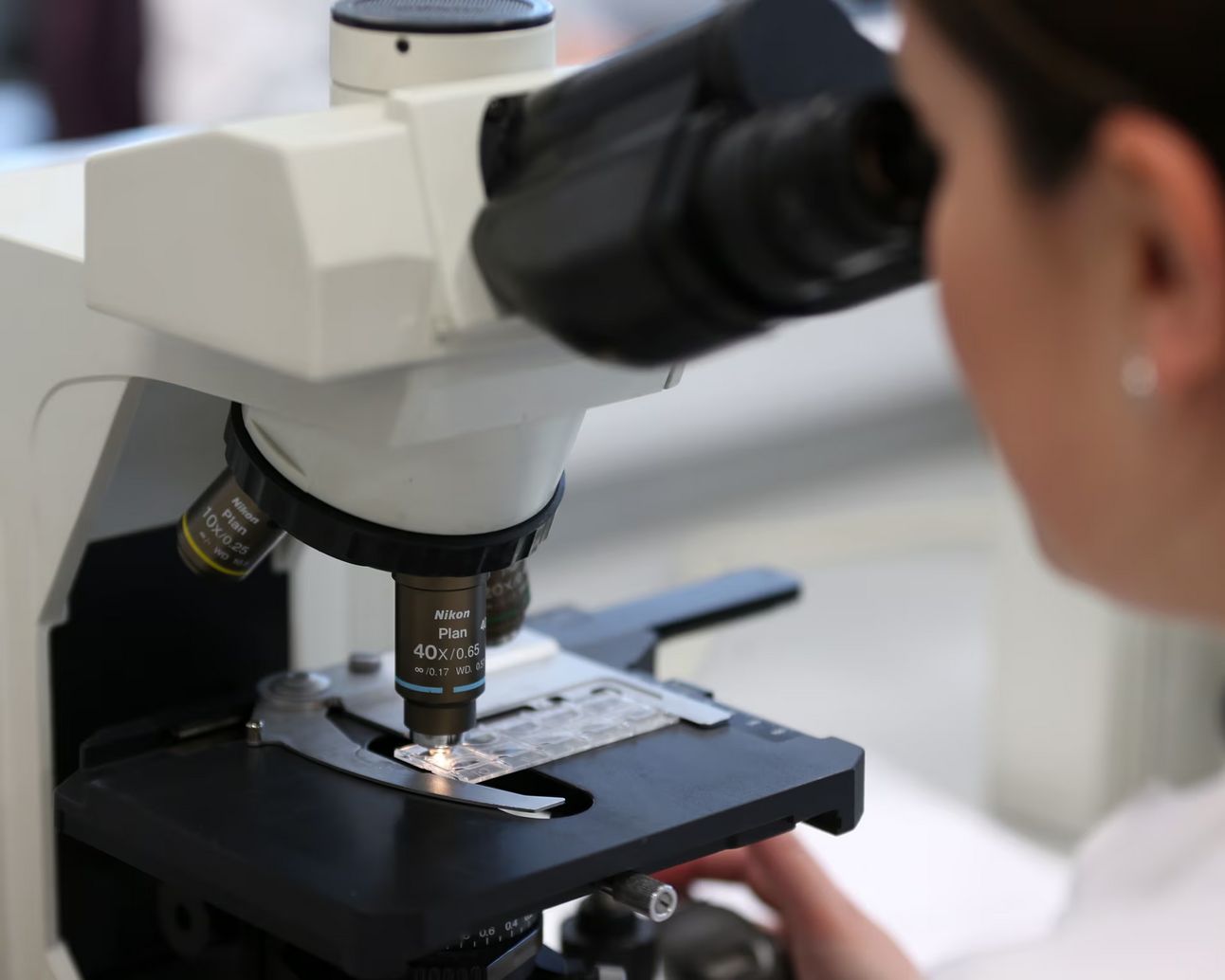- AI Weekly Wrap-Up
- Posts
- New Post 6-4-2025
New Post 6-4-2025
Top Story
“Queen of the Internet” drops massive report, calls AI an “unprecedented opportunity”
The rise of the internet was heralded, tracked, and analyzed by the legendary Mary Meeker, dubbed “Queen of the Internet”, whose annual Internet Trends Report from 1995 to 2019 was one of the most authoritative and respected sources of information about the web. After a few years of silence, the Queen is back - now with a massive 340-slide deck of graphs analyzing the rise of artificial intelligence. For AI fanatics (such as moi), the report offers a cornucopia of insights about this pivotal technology’s early development. For normal folks - Tl;dr - Meeker is even more bullish on the future of AI than she was during the go-go days of the dot-com boom. It seems almost every other slide is captioned with the adjective “unprecedented” - unprecedented growth, unprecedented opportunity. Meeker seems to be one of the few respected analysts that thinks AI has been underhyped - and her cheerleading for the internet proved to be far more often right than wrong.

Internet prophet Mary Meeker sees even more opportunity in AI.
Clash of the Titans
ChatGPT wants to be your super assistant…
A leaked internal memo from OpenAI has surfaced, due to legal discovery proceedings in the Google antitrust case. The memo lays out OpenAI’s strategy for 2025, which is to make ChatGPT everyone’s personal assistant. In the company’s vision, ChatGPT will manage your calendar, book reservations for you, sort your email, and more, according to your personal preferences. The memo describes the new role as an assistant that “gets to know you, understands what you care about, and helps with any task that a smart, trustworthy, emotionally intelligent person with a computer could do.” In such a scenario, the key attribute is “trustworthy”, since ChatGPT will have access to financial and personal details that could be easily misused by the company.

OpenAI CEO Sam Altman has long wanted ChatGPT to be a consumer application rather than a research organization, and it now appears that he wants it to be your personal assistant
… and Perplexity’s new Labs feature wants to do your work
Not coincidentally, in the feverishly competitive environment of Silicon Valley AI firms, AI search startup Perplexity also wants to be your workplace assistant. Perplexity’s Labs feature allows Pro users ($20/month subscription) to create charts, graphs, and interactive dashboards on any topic. It will perform the same deep dive on a topic that the company’s Deep Research feature does, but instead of producing a purely text-based response, it will organize the data into attractive and informative dynamic displays.

Scrappy AI search startup Perplexity keeps adding features.
Elon borrows $5 billion for xAI at stratospheric interest rates
Licking his wounds from his chaotic tour and subsequent ouster as the head of the DOGE cost-cutting task force under President Trump, which resulted in huge hits to Tesla’s sales and stock price, Elon is trying to amass a war chest for a business comeback. And he is seeing a lot more upside potential in xAI, his AI company, than in his electric car company. In more normal circumstances, he would sell or issue more stock to raise a few billion dollars, but these are not normal times, and any offer of xAI stock might fall flat. So like so many shaky entrepreneurs in a cash squeeze, he’s going to the lenders who specialize in high risk ventures to borrow the money. High risk means high interest rates, and he is reputed to be getting the funds at 12 percent interest, and perhaps higher for part of the funds. At 12%, interest costs would be $50 million per month. In order to shore up the deal, he is engineering a smallish (for him) special sale of xAI stock held by employees, which would be priced at $113 billion for the company. If this sale goes through, he has validation of the new sky-high company valuation, and can then try to raise more money through a more standard VC transaction. Wheels within wheels for the world’s richest man-boy, and the center of all the wheels is Elon’s pocket.

Elon has been taking a beating lately - apparently, literally.
Fun News
China is closing the gap with the US in AI
A recent report from the famed RAND research organization notes that China’s AI models are catching up to models from the US, and will probably equal the US within a year. RAND argues that the US will still be ahead in implementing AI due to its massive lead in computing power, which will take longer for China to overcome.

China’s DeepSeek rivals US AI models in performance, and usage is growing rapidly.
UAE is becoming a global AI hub
The United Arab Emirates is becoming a major AI power, not yet on the level of the US and China, but growing rapidly in infrastructure and talent. The UAE has strategically invested a major portion of its petrodollars into AI, and is steadily climbing up the AI food chain from consumer to producer. The country is now second only to the US in attracting top AI talent, using a Golden Visa program that gives 10 years of residency for skilled professionals, no taxes, high salaries, and streamlined procedures for starting a business. The UAE’s major AI firm, G42, has forged partnerships with US tech giants such as Microsoft, Nvidia, and Oracle, and was a major beneficiary of the recent deal announced by Trump in his visit to the country, in which a 5-gigawatt data center (enough electricity to power a city) will be built in the UAE, with chips from Nvidia and cloud services from Microsoft. In return, the UAE will invest billions into US AI firms and US datacenter construction. The US government sees AI as a strategic resource, and is working to build global alliances to align other countries (especially rich countries) with our goals.

The UAE’s Golden Visa program attracts top AI talent from around the globe.
Anduril takes the lead on Army AI headset project, reunites with Meta
Defense AI startup Anduril, founded by Palmer Luckey, the boy billionaire who invented modern virtual reality headset technology in his college dorm room, has taken over the lead in the US Army’s $22 billion combat headset project. The project was previously led by Microsoft, but ran into difficulties. Microsoft will remain involved as the cloud services provider for the project. In another major plot twist, Anduril is bringing Facebook/Meta into the project, to provide AI model support, as well as the VR headset technology that Luckey sold to Meta in 2014 for $2.3 billion. Luckey left Meta on bad terms in 2017, but time, and a $22 billion-dollar contract, can heal old wounds. See below for a photo of Luck and Zuck’s kiss-and-make-up reunion.

Billionaire boy geniuses Luckey and Zuckerberg bury the hatchet to feast on a fat defense contract.
AI predicts child malnutrition crises in Kenya up to 6 months in advance
Kenya is a developing country where a significant proportion of the population faces periodic food insecurity, depending on the local weather conditions and associated crop yields. Now researchers at the University of Southern California have developed an AI model that combines public health data from the Kenyan government with satellite photos that indicate crop health, plus weather forecasting data, in order to predict looming food crises in time for the government to respond. The system has been found to demonstrate 89% accuracy for predictions of child malnutrition within one month, and maintains 86% accuracy for 6-month projections.

Dry plains in Kenya. (Credit: Kiplaar for iStock)
Robots
China developing AI-guided robo-rockets to protect their space station
China’s space station, named Tiangong (“Heavenly Palace”), has been in low-Earth orbit since 2021. In that time, the station has suffered several “near misses” from other orbiting objects, including notably, 2 instances involving Elon Musk’s Starlink satellites. China complained to the UN about those 2 episodes, blaming the US government. Now, China has decided that it will no longer be content with employing evasive maneuvers - it is developing AI-guided space tugboats that will latch onto approaching objects and ferry them away from the space station’s path. It is not lost on US defense specialists that a robo-rocket that can wrestle an object away from the space station could also blow the object up, or kidnap it for closer inspection, analysis, and reverse engineering. Space may be getting less friendly.

China’s space station Tiangong (“Heavenly Palace”)
Hyundai uses over 850 robots in Georgia assembly plant
Korean carmaker Hyundai has built an electric-vehicle-only assembly plant in Georgia, and has committed to leading-edge automation to cut costs and assure quality. Hyundai is the owner of Boston Dynamics, the robotics company that builds the iconic humanoid robot “Atlas”, the star of so many viral internet videos showing it dancing or performing acrobatics. The Georgia plant uses over 850 robots in the assembly process, including commonplace welding robots, wheeled transport robots for delivering parts at the right time and place, Boston Dynamics’ “Spot” robo-dog for inspecting welds, and soon, Atlas-style humanoid robots to help with parts selection and assembly. The number of humans employed at the plant (currently 1,400) is projected to grow to over 7,500 as the robots take over less skilled work, the humans focus on complex tasks, and the output of the factory continues to grow in line with the growth of the EV market in the US.

Hyundai uses doglike robots from Boston Dynamics to inspect welds on a car chassis.
AI in Medicine
AI test finds which men will benefit from new prostate cancer drug
UK scientists have developed an AI system that can determine which men can benefit from a new prostate cancer drug. The drug, abiraterone, is used routinely in men with aggressive prostate cancers that have metastasized. However, the drug is extremely costly, and only provides benefit to a minority of men with high-risk prostate cancer that has not yet metastasized. Based on this fact, the UK National Health Service was prepared to recommend against its use in men without metastases. However, a team of scientists at University College London developed an AI system that could examine images of prostate biopsy specimens, pick up subtle indicators of aggressiveness not visible to the human eye, and accurately identify the 25% of the men with non-metastatic high-risk cancer that would benefit from the drug. Using the AI in this way, the researchers were able to cut prostate cancer mortality in this cohort of men in half.

AI image analysis of prostate biopsy specimens was found superior to humans for judging aggressiveness of the cancer.
EPIC’s Launchpad program helps smaller hospitals embrace AI
Hospital EMR giant Epic is busily adding AI functions throughout their industry-leading software. The company recently announced that they have 125 AI projects in development. In order to turn new AI features into revenue, Epic has introduced Launchpad, a consultative program in which Epic AI experts work with a provider organization to identify promising uses of AI, and help the organization implement them effectively.

Epic’s whimsical campus mirrors the founder’s quirky humor.
That's a wrap! More news next week.